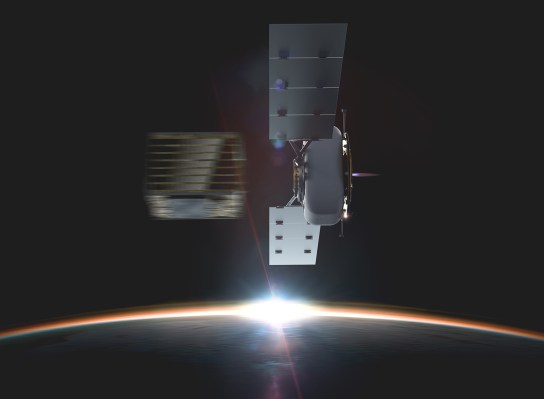Just nine months after launching from Y Combinator with a new propulsion technology, Momentus has inked its first customers for its transportation technology that can take cargo beyond geostationary orbit — and ultimately to a lunar orbit.
With those customers in tow, the company is also out fundraising, looking for up to $25 million in fresh financing, according to chief executive Mikhail Kokorich.
“It’s the first low-cost transportation way to deliver a small payload from low Earth orbit to geostationary orbit and to the Moon,” says Kokorich of the company’s technology.
Both Exolaunch and Deimos Space will use Momentus spacecraft to take their satellites beyond the drop positions they’d occupy by hitching a ride on a SpaceX, Soyuz, Long March or Ariane rocket.
The service can deliver 300 kilograms or 400 kilograms within low Earth orbit and up to 100 kilograms to a lunar orbit, according to Kokorich — for a cost of around $4.8 million.
That’s radically cheaper than solutions that are currently on offer. Momentus uses rockets from any of the big private vendors to get its vessels into space and from there its own propulsion technologies and spacecrafts will haul a small cargo (roughly the size of a kitchen table) anywhere else it needs to go, Kokorich says.
Momentus solves one of the major problems for the new space industry, Kokorich says. Big rockets under development from SpaceX, Ariane, Soyuz and Blue Origin are great for getting payloads to low Earth orbit, but aren’t great for depositing cargo at different points in space. “You don’t need all this payload in the same orbit, so you need the second leg in multi-modal logistics,” says Kokorich. That’s where Momentus comes in, he says.
Last year when Spaceflight launched its smallsat express mission, the mission was considered a success because the company was able to unleash its historic payload into space, but, according to Kokorich, the outcome was less than desirable for the companies whose payload SpaceX delivered.
“The satellites that ended up in the same orbit are in a mess,” says Kokorich.
